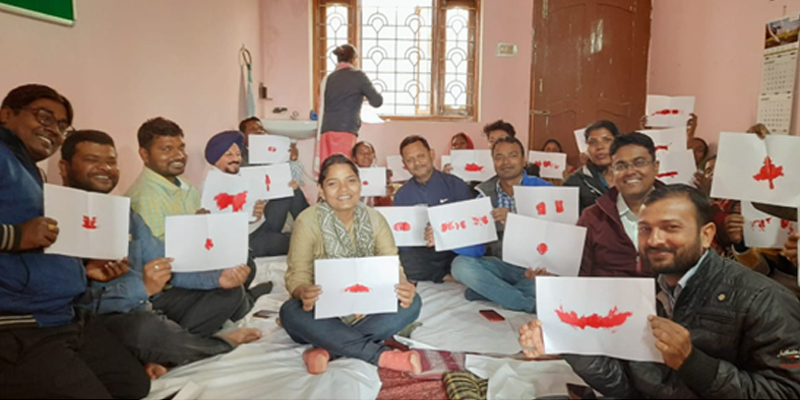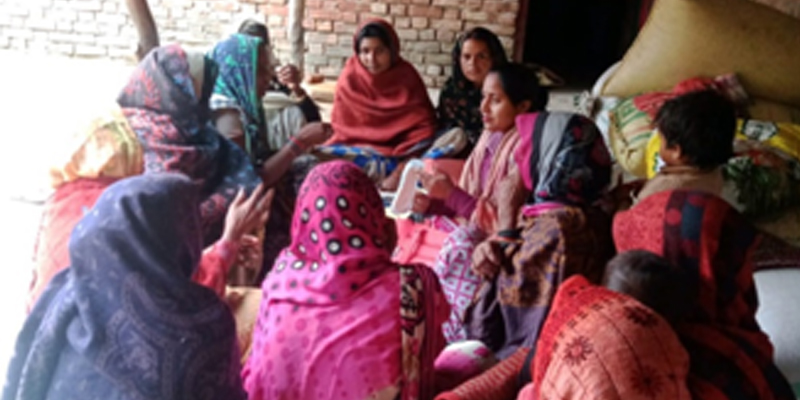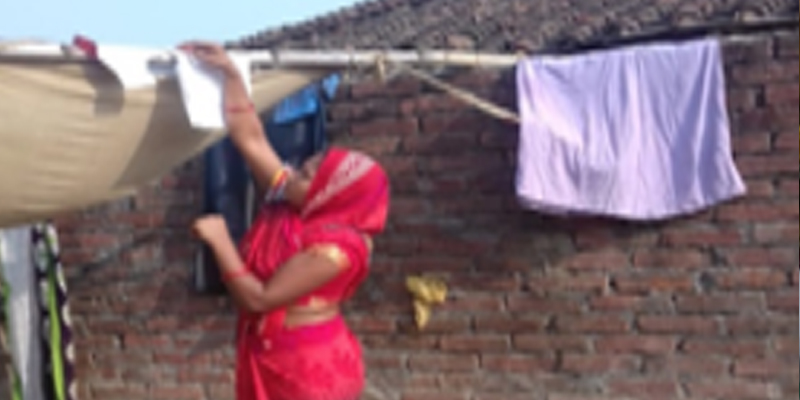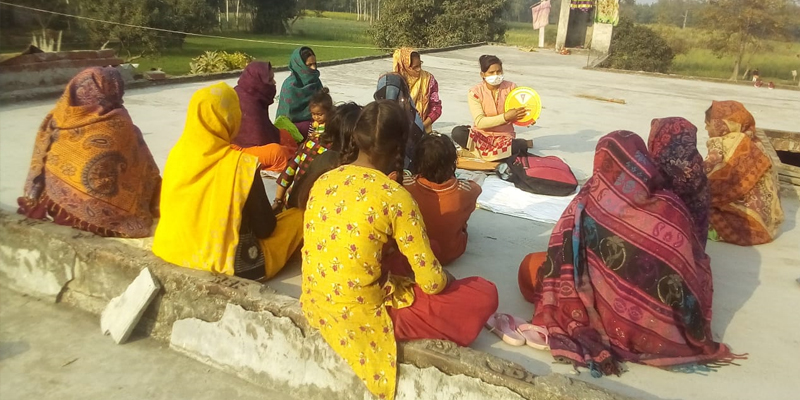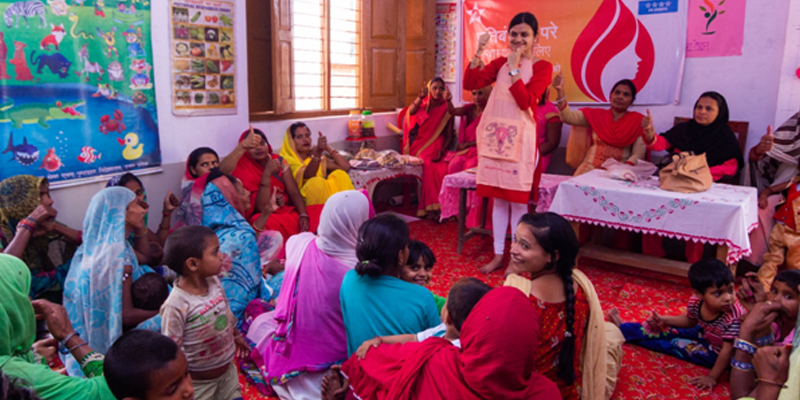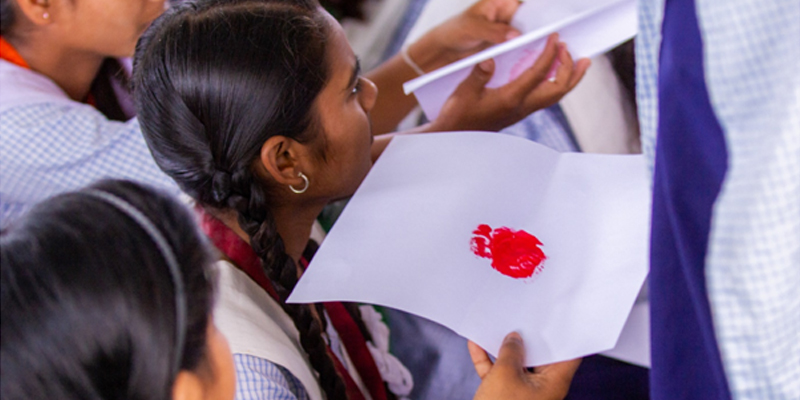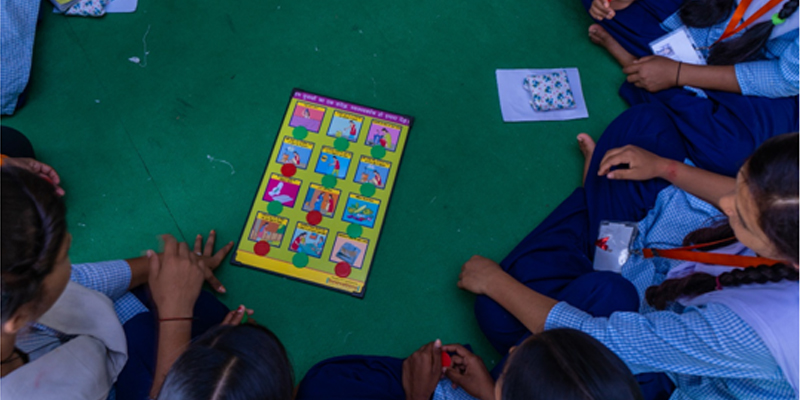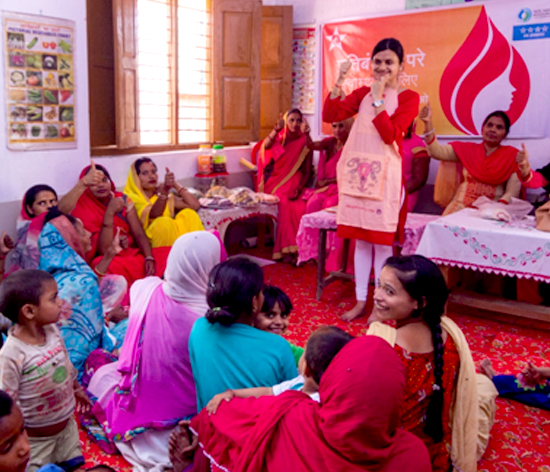
“I’m not pure or impure. I’m a normal person even during my periods.”
Khushboo sounds quietly determined as she says this, but it is a truth that took her a long time to understand. A resident of Newariya village in Gilaula district, Uttar Pradesh, Khushboo initially followed all the prevalent cultural taboos and myths during her menstrual cycle.
Menstrual taboos
Like every other woman in the village, Khushboo was also not allowed to touch anything in the house during her periods. Neither was she allowed to do any household chores or cook food during her periods because she was considered ‘ashudh’ (impure). These taboos were not only practiced by her in-laws, but even as an adolescent, the monthly periods had never been an easy time – she had been told that the menstrual blood was impure, and hence her diet was restricted, she wasn’t allowed to touch anything or even cook food for her family. She was told that by not following these restrictions she would bring harm to her and her family. Moreover, she had to utilise old cloth to manage her period, which often led to skin rashes and infection.
Realisation dawns
The Tata Trusts have been working on issues of sanitation and hygiene through the Tata Water Mission’s Menstrual Hygiene Management (MHM) programme. The MHM programme seeks to build a socio-cultural environment that is conducive for girls and women to manage menstruation with dignity and without fear. Workshops and behaviour change communication sessions help to disseminate accurate information about menstruation and hygiene. Such sessions were held in Khushboo’s village as well, facilitated by Sangeeta, the Trusts’ on-ground community resource person.
Attending these sessions changed Khushboo’s life. She began to understand that menstruation is a natural biological phenomenon that all women go through and that menstrual blood is normal blood. By the third or fourth module, she was able to question the notion of ‘impurity’ and reason scientifically. But the question remained – how could she challenge her family’s belief in the age-old myths?
A silent challenge
Breaking age-old cultural taboos is never easy. Nor is it easy to challenge your family structure, especially when you are conditioned to obey unquestioningly. A vocal protest would only make matters worse. But Khushboo was determined that change had to begin with her. Fortunately, she had her husband’s full support. But she didn’t yet know how to broach the subject with her mother-in-law.
Instead of turning her home into a battleground, Khushboo began to cook food during her periods without telling anyone. For three months, everyone ate the food she cooked, including her mother-in-law. It was then that she approached her mother-in-law with the truth – no one had fallen ill nor had any harm occurred to any family member because they ate the food she cooked during her periods.
Initially, her mother-in-law was furious. But soon, she came to realise that Khushboo was right. Khushboo is happy to acknowledge that now her mother-in-law not only supports her but also shares this experience with others to make them change their thoughts around it. Khushboo cannot thank Sangeeta or the Trusts enough. “I’m so thankful to Sangeeta didi for making me realise that I’m not impure or pure, just a normal person even during my periods,” she says.
The Trusts’ MHM programme has not only helped Khushboo overcome the cultural myths of menstruation, but also helped her follow hygienic practices such as clean absorbents to manage her periods.
